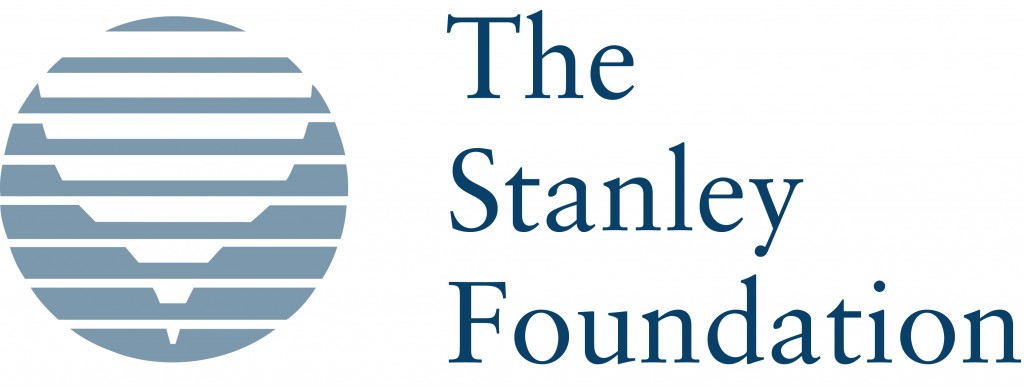So back to the role of the Stanley Foundation (TSF) in analyzing multilateralism in today’s global order. I had the good fortune to connect with TSF’s President Keith Porter. And he was good enough to respond to my questions. Keith started out responding to my questions:
I think your questions, “How does the Foundation tackle the broader concert diplomacy aspects of global governance? How does the Foundation capture and comment on contemporary multilateralism?,” don’t get to the heart of our approach. The foundation recently completed a major strategic planning effort where we re-affirmed our belief that multilateral action is the only way to bring about fair, just, and lasting solutions to the problems facing the world today. However, we also acknowledged that the infrastructure of multilateral cooperation has changed over the years. Given the growing number of active multilateral venues and the stubborn refusal of states to adapt older institutions to the changing world order, this doesn’t seem like the time to advocate for a grand, new, master plan for universal global governance.
I conclude – as a result of Porter’s statement – that TSF is not at this point in time focused on the institutions of concert diplomacy. This marks a significant rethinking, in my opinion, of the TSF efforts. TSF appears to have determined that for now it will focus on the following:
Instead, we have taken a different route. The way to improve the reputation of multilateral action is to actually solve important problems. The more that the venues, institutions, and processes of multilateralism demonstrate their worth as means for global problem solving, the more the cause of effective global governance will be advanced. So our current approach is to pursue specific principled, multilateral policy goals that will promote greater habits of global cooperation while also enhancing worldwide peace and security.
Our three areas of focus, genocide prevention, nuclear material security, and climate change, each engage multiple venues and different groupings of state stakeholders. Genocide prevention is a key topic of the UN General Assembly and two special advisers to the UN Secretary General. It is also addressed by many regional intergovernmental organizations and the newly formed Global Action Against Mass Atrocity Crimes founded by the governments of Switzerland, Tanzania, Argentina, Australia, Costa Rica, and Denmark. The Nuclear Security Summit process was created to deal with nuclear material security, but our work here also engages the International Atomic Energy Agency, the UN Security Council’s 1540 Committee, and other venues. Climate Change has an institutional home in the UN Framework Convention on Climate Change (UNFCCC) amid persistent questions about the effectiveness of a universal, top-down approach to the problem. Our early efforts in this issue area will engage the UNFCCC, but we are also mapping a wide range of other venues where multilateral cooperation on climate change is moving forward.
There is no question that in these three policy areas – genocide prevention, nuclear material security, and climate change – and in other global governance issue areas that there a variety of venues where great power and other actors seek to advance the collaborative actions of these actors.
Because the foundation is committed to the idea that multilateral success in these specific areas will advance the cause of effective global governance more broadly, we are always on the lookout for opportunities to draw out the lessons from each issue and share our experiences with the larger global governance community. The series we have co-hosted on global institutional reform (along with the Council on Foreign Relations, the Munk School of Global Affairs at the University of Toronto, and Princeton University) is one example. The most recent report from that event, held at Oxford University, is here: http://globalsummitryproject.com/?p=197
We are not looking at a specific venue, a particular state’s global role, nor the importance of any bilateral relationship. Rather than tackling concert diplomacy or commenting on multilateralism, we are advocating for progress on specific issues. Our take is that global governance requires persistence and attention, and that consistently exercising the habits of global cooperation in important areas contributes to an improved international atmosphere overall.
While I applaud TSFs efforts to “draw out the lessons” I am worried that TSF – one of the few think tanks in North America that have a dedicated program to multilateralism – is not going to have a program dedicated to multilateralism more broadly rather than targeting these three programs.
And let me also clarify, what I am suggesting. My targeting global summitry is not based on an “institutional” focus. We know, or should, that global summitry now appears in a variety of venues. A singular focus on the UN, or indeed any other institutional setting, would be inadequate. Moreover, when I talk about examining global summitry I am talking about behavior not structure and architecture. I am encouraging a focus on what was in the past called, diplomacy – or what is today called negotiation and decision making.
And in examining such behavior we are called on to look and draw conclusions from a host of settings – from the S&ED, from the G20, NSS, EAS, etc., etc., etc., It is complicated analysis operated from the bilateral, the plurilateral and the international leadership settings.
It is a broad look at what Porter calls the ‘how’. It may appear to be academic – how to build greater collaboration among the great powers – and thereby overcoming the collective action problem that haunts international cooperation. It may appear to be academic – but it is not. Let’s hope that TSF continues to examine this crucial policy question.


